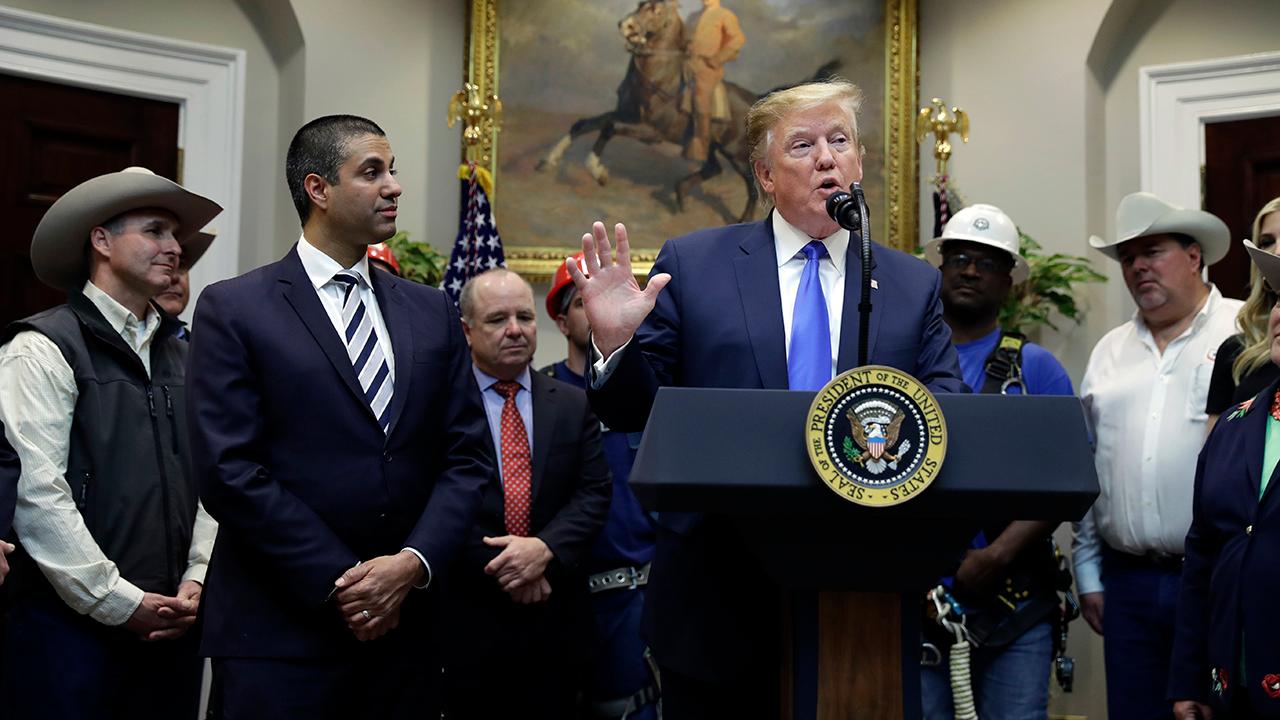5G race full-speed ahead: Misguided attempt to nationalize is over, for now
Thankfully, President Trump announced last week that he opposes nationalization of 5G.
“In the United States our approach is private-sector driven and private-sector led. The government doesn’t have to spend lots of money. Leading through the government, it won’t be nearly as good, nearly as fast,” Trump said.
Indeed, the private sector is investing billions of dollars in 5G technology to win the race against global competition and maintain American leadership in this field. All prior generations, including the current 4G, were developed first in the U.S. through fierce competition and without government intervention.
But, even as several carriers have already developed and are now launching new 5G networks in several major cities across the country, many inside the Beltway, including within the Trump administration, had been pushing hard for the nationalization of 5G. This would mean “sharing” this spectrum with companies that are not investing a single penny in this expensive process.
This concept would have been one of the dumbest ideas ever promoted by any administration. Nonetheless, some on the right are still pushing for nationalization, regardless of the clear and tangible consequences. A government takeover of 5G would be tantamount to stealing the private property (spectrum) that was purchased at competitive auctions by private companies, which in turn invested billions in their networks.
They certainly would not have paid the same amount for that spectrum, or perhaps not purchased it at all, if they knew that the government would be taking it back and giving it away to competitors.
As FCC Commissioner Brendan Carr wrote in a National Review op-ed, the U.S. should not nationalize 5G in order to beat China. Using Chinese command-and-control policies “would fail,” just as other government-run projects such as high-speed rail have been unsuccessful. Carr cited “smart infrastructure policies, putting more spectrum into the marketplace, and allowing our private sector to invest and compete.”
He added that the FCC has cut more than “$3.6 billion in government red tape.” These efforts, which should continue, include suspending the provisions of two federal environmental laws and accelerating wireless broadband deployment by placing reasonable limits on the ability of local governments to delay deployment of 5G with high fees and excessive regulations. All five members of the FCC, including the two Democrats, immediately voiced their objection to 5G nationalization when it was first proposed by the Trump administration in January 2018.
Kentucky Wired is one of many troubled and failed state and municipal broadband projects, including UTOPIA, an 11-city project in Utah. One of those cities, Provo, spent $39 million on its network and ended up selling it to Google for $1. In October 2018, Kentucky state auditor Mike Harmon released a report that found the Kentucky Wired project is at least three years behind schedule and will cost $1.4 billion, or 20 percent more than its initial $1.17 billion budget.
A 2017 study on municipal fiber expenditures by University of Pennsylvania professors Christopher Yoo and Timothy Pfenninger noted that underperforming projects have caused defaults, reduced bond ratings, and payments from taxpayers. They added that the projects also distract from more important matters.
CLICK HERE TO GET THE FOX BUSINESS APP
5G nationalization should be permanently discarded into the graveyard of failed government-funded projects that litter the United States. The race to 5G should be won the American way, with private investment and private competition, like every other generation of telecommunications technology.
Tom Schatz is the president of Citizens Against Government Waste. CAGW is the nation’s largest nonpartisan, nonprofit organization dedicated to eliminating waste, fraud, abuse and mismanagement in government.




















